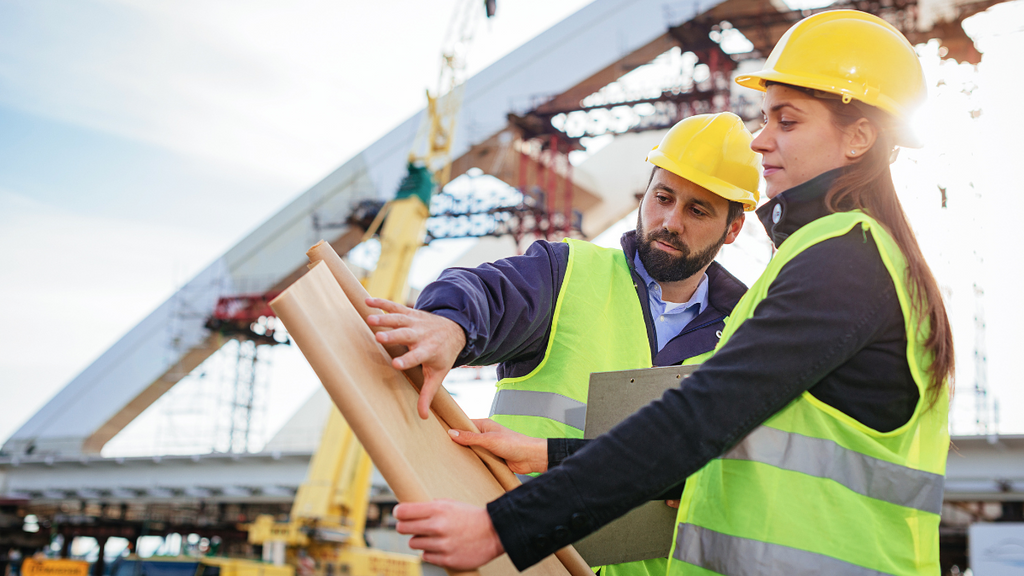The 45-Second Trick For Geotheta
The 45-Second Trick For Geotheta
Blog Article
Geotheta Things To Know Before You Buy
Table of ContentsThe 15-Second Trick For GeothetaGetting My Geotheta To WorkExcitement About GeothetaThe Basic Principles Of Geotheta Geotheta Fundamentals Explained

They perform website investigations, accumulate samples, perform research laboratory examinations, and analyze data to assess the viability of the ground for building tasks - Geotechnical Engineers. Based on their findings, geotechnical engineers provide suggestions for structure style, incline security, preserving frameworks, and mitigation of geotechnical hazards. They team up with various other professionals, such as engineers, structural designers, and building and construction groups, to ensure that geotechnical factors to consider are integrated into the general task style and execution
By analyzing the actions and residential properties of dirt and rock, they can determine prospective geotechnical risks such as landslides, dirt settlement, or slope instability. Their knowledge aids avoid failings or accidents that might jeopardize lives and building. Here are some comprehensive responsibilities and duties of a geotechnical designer: Site Investigation: Geotechnical engineers conduct website examinations to collect data on subsurface conditions.
They interpret the data to understand the buildings and behavior of the soil and rock, including their strength, leaks in the structure, compaction qualities, and groundwater conditions. Geotechnical Analysis and Style: Geotechnical designers evaluate the information gathered throughout website investigations to assess the security and viability of the website for building and construction tasks. They carry out geotechnical computations and modeling to evaluate elements such as birthing ability, settlement, incline security, side earth stress, and groundwater circulation.
A Biased View of Geotheta
Structure Style: Geotechnical designers play a crucial function in making structures that can safely sustain the desired framework. They assess the dirt problems and tons requirements to identify the suitable structure type, such as superficial structures (e.g., grounds), deep foundations (e.g (https://gravatar.com/exactlypainterdeb7b76e1a)., piles), or specialized methods like soil improvement. They think about variables such as settlement limits, bearing capability, and soil-structure communication to establish ideal foundation designs
They evaluate building and construction strategies, screen website activities, and conduct field evaluations to confirm that the style suggestions are followed. If unanticipated geotechnical concerns emerge, they evaluate the situation and supply referrals for removal or modifications to the style. Threat Analysis and Reduction: Geotechnical engineers examine geotechnical dangers and dangers connected with the project website, such as landslides, liquefaction, or soil erosion.

Collaboration and Communication: Geotechnical engineers work carefully with other professionals associated with a task, such as architects, architectural engineers, and construction groups. Efficient interaction and cooperation are vital to integrate geotechnical considerations into the overall project design and building process. Geotechnical designers give technological experience, solution questions, and guarantee that geotechnical requirements are fulfilled.
The Greatest Guide To Geotheta
Below are some sorts of geotechnical designers: Foundation Designer: Foundation designers focus on developing and analyzing structures for frameworks. They evaluate the dirt problems, lots demands, and website features to identify one of the most appropriate structure kind and design, such as shallow foundations, deep foundations, or specialized methods like heap foundations.
They evaluate the factors influencing slope stability, such as soil properties, groundwater conditions, and incline geometry, and establish techniques to avoid slope failings and reduce risks. Earthquake Designer: Quake engineers concentrate on assessing and making structures to endure seismic pressures. They assess the seismic danger of a website, review dirt liquefaction capacity, and establish seismic layout standards to guarantee the safety and strength of frameworks during earthquakes.
They execute area testing, gather examples, and examine the gathered data to define the dirt residential or commercial properties, geologic formations, and groundwater conditions at a website. Geotechnical Instrumentation Engineer: Geotechnical instrumentation engineers concentrate on monitoring and determining the behavior of soil, rock, and frameworks. They install and keep instrumentation systems that keep track of aspects such as dirt negotiation, groundwater levels, slope motions, and structural displacements to analyze efficiency and give very early warnings of possible problems.
The Best Strategy To Use For Geotheta
They conduct examinations such as triaxial examinations, consolidation tests, direct shear tests, and leaks in the structure examinations to collect data for geotechnical analysis and style. Geosynthetics Engineer: Geosynthetics designers focus on the design and application of geosynthetic products, such as geotextiles, geogrids, and geomembranes. They use these materials to boost soil security, strengthen slopes, supply water drainage remedies, and control erosion.
They tend to be investigatory people, which implies they're intellectual, introspective, and analytical. They are curious, methodical, rational, logical, and rational. Some of them are also social, suggesting they're kind, generous, participating, patient, caring, practical, empathetic, tactful, and friendly - Geo Tech Engineering.
In the office setting, geotechnical engineers use specialized software application tools to do calculations, create layouts, and examine information. They prepare records, evaluation project requirements, communicate with clients and team participants, and coordinate job tasks. The office setting provides a favorable atmosphere for study, evaluation, and cooperation with other specialists associated with the project.
The smart Trick of Geotheta That Nobody is Discussing
They frequently check out project sites to carry out site examinations, evaluate geotechnical problems, and gather information for analysis. These sees entail traveling to various areas, occasionally in remote or challenging surfaces. Geotechnical engineers may perform dirt tasting, conduct examinations, and display building tasks to make certain that the geotechnical elements of the task are being carried out properly.
Geotechnical engineers additionally function in specialized geotechnical laboratories. In these facilities, they carry out experiments, carry out tests on soil and rock examples, and analyze the design homes of the products. Geotechnical laboratory designers work thoroughly in these settings, taking care of testing devices, running instruments, and tape-recording data. They collaborate with various other laboratory staff to guarantee precise and reliable next testing outcomes.
Report this page